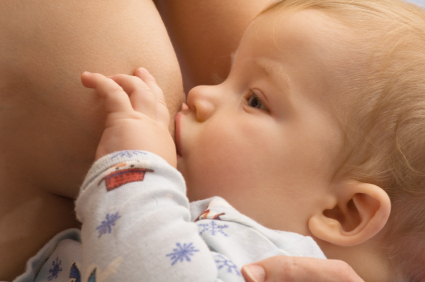Is breastfeeding better than formula feeding? Every mother contemplates this question. Many instinctively "feel" that breastfeeding will lead to better infant health, and they hear countless media sources touting the many advantages of breastfeeding, from economics (you don't have to pay for breast milk) to better immune health (see American Pregnancy Association ). Mothers who cannot breastfeed for health or personal reasons worry that they are depriving their children of essential nutrients that could affect their infants' health levels. Therefore, they worry that they are placing their children at a disadvantage.
 Perhaps they should worry no more. Professor Sven Carlsen, author of a recent study published through Acta Obstetricia and Gynecologica Scandinavica, claims that there is no difference between breastfeeding and formula feeding in regards to children's health. (Read About It at the ) Carlsen, an expert in the hormonal changes of pregnancy, says instead that although studies show that breastfed babies are slightly healthier later in life, it is due to conditions in the womb and not due to later breast or formula feeding. Professor Carlsen suggests that higher levels of testosterone in the womb alter the infant's development and the mother's later ability to breast feed. Thus, the difference observed is actually an example of a correlation rather than an instance of causation.
Perhaps they should worry no more. Professor Sven Carlsen, author of a recent study published through Acta Obstetricia and Gynecologica Scandinavica, claims that there is no difference between breastfeeding and formula feeding in regards to children's health. (Read About It at the ) Carlsen, an expert in the hormonal changes of pregnancy, says instead that although studies show that breastfed babies are slightly healthier later in life, it is due to conditions in the womb and not due to later breast or formula feeding. Professor Carlsen suggests that higher levels of testosterone in the womb alter the infant's development and the mother's later ability to breast feed. Thus, the difference observed is actually an example of a correlation rather than an instance of causation.
This conclusion, however, goes against what experts have been saying for years. (Agency for Healthcare Research and Quality) And some researchers and physicians have fired back at Professor Carlsen's conclusions. UNICEF in the UK even issued a direct retort of Carlsen's statements, agreeing that he poses an interesting question, but hammering the point that numerous prior studies have supported the idea that breastfeeding leads to better infant health.
The makers of baby formula attempt to match the qualities of a mother's milk by including ingredients that simulate breast milk in consistency and nutrition. One formula, Enfamil, advertises a Triple Health Guard formula that is "clinically proven to benefit your baby" in growth, brain development, and development of a healthy immune system. Yet no formula can match the natural immune benefits of breast milk because none contain the antibodies passed between mother and child (KidsHealth ).
Dr. Carlsen's basic presumption, that breast feeding and formula feeding will be equally valuable to your baby, may or may not be entirely correct, but I do agree that there is not a great deal of difference between the two. If there were alarming differences, in all the years that formula has existed, then the FDA would have done something about it by now. Those studies that find one is better than the other haven't found much of anything at all. If you choose formula, you are NOT hurting your child's development.
Additionally, if you are a working mother who cannot always be available to breastfeed, or if you have medical issues which make breastfeeding more difficult, you might even be better off using a formula. Why? You will become stressed if you ignore the signals your body and mind give you, and when you are stressed, your body reacts by altering hormone levels and altering immune response. Your milk may not be as beneficial, and you may be better off feeding your baby formula rather than passing along hormonally altered milk. Do not fight your natural situation. If you are willing, able, and desire to breastfeed, then do it. If you are not, then you will be just fine using a formula. This small thing, feeding your baby breast milk or feeding it formula, will not cause any significant differences later in life.
There are other things that make a far greater difference.
Most important to me is infant nurturing. Forget the minuscule differences attributed to formula or breast feeding. Differences in infant nurturing will affect emotional and physical development far more than a few antibodies. Whether you do or do not breast feed, just be sure to present a warm and nurturing environment during feeding. Whether you breast or bottle feed, do not just force-feed your baby absent-mindedly according to your own schedule, but instead pay attention to your baby's needs and maintain a strong bond between yourself and your child. Some parents ignore infant hunger levels and simply force bottles or nipples into their children's mouths, as I have written about in the past. It should go without saying that this is not a good way to go about things.
In the great scheme of things, breast versus formula feeding makes far less of a difference than these personal interactions that can help your child grow into an emotionally healthy individual.
What is my final advice? Don't worry about Dr. Carlsen's findings. Don't worry about the rebuttals. Being a good parent is about far more than protecting your child from the smallest imaginable threats, harped on by the media only because their ratings demand that they scare you. Just be the good parent that you are. Love and adore your child, and the little things will take care of themselves.